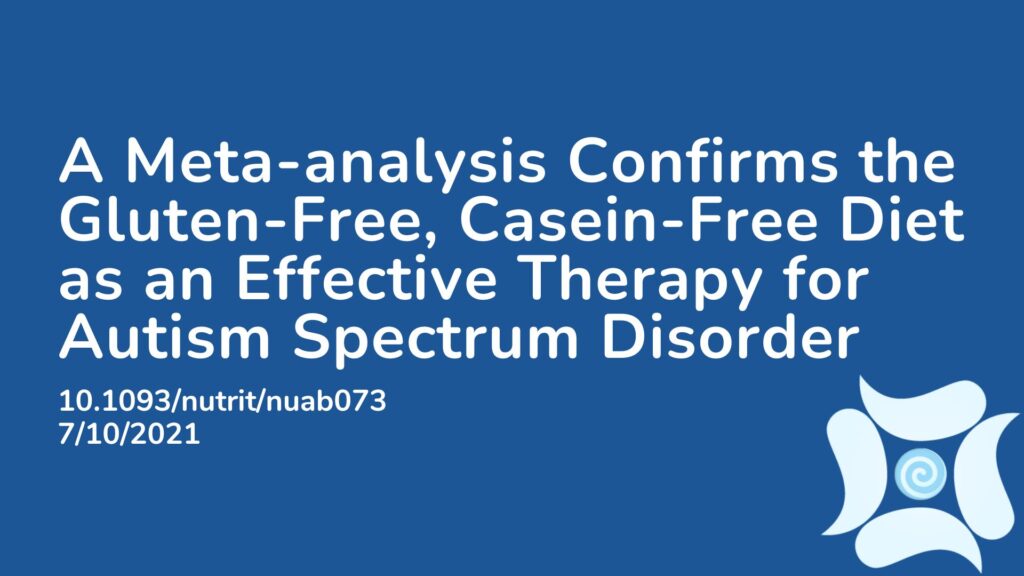Summary:
Existing treatments for Autism spectrum disorder (ASD) primarily focus on educational and psycho-social interventions, along with medication, but their efficacy, especially in early developmental stages, is limited. Research has started to explore alternative therapies like diet, notably the gluten-free and casein-free (GFCF) diet, which eliminates gluten-containing grains and dairy products. The effectiveness and safety of the GFCF diet for ASD remains debated. Some studies suggest it can alleviate various symptoms, however some show no significant improvement and nutritional deficiencies. To address this gap, this study is a meta-analysis to assess the effects of the GFCF diet compared to a normal diet in individuals with ASD. 8 studies were included, with a total of 297 participants. Among these, 5 studies demonstrated significant reductions in stereotypical behaviors, while 3 studies reported enhancements in cognition following a GFCF dietary intervention. This meta-analysis highlights the potential of a GFCF diet to diminish stereotypical behaviors and enhance cognition in children with ASD.
Abstract:
Context: It has been suggested that a gluten-free and casein-free (GFCF) diet may alleviate the symptoms of autism spectrum disorder (ASD) and facilitate neurodevelopment of children with ASD. Studies to date have been inconclusive.
Objective: This study aimed to evaluate (through quantitative meta-analysis) the efficacy and safety of a GFCF diet for children with ASD. To our knowledge, this is the first time such an analysis has been carried out.
Data Sources: Eight electronic databases were searched, from the establishment of each database up to March 27, 2020: PubMed, Web of Science, Embase (Ovid), PsycINFO (Ovid), Cochrane Library, CNKI, Wanfang, and VIP databases. Data Extraction: Two authors independently performed the data extraction and risk-of-bias assessment. Data Analysis: A quantitative meta-analysis was performed with standard procedures by using Stata SE 15 software. Within the total of 8 studies, with 297 participants, 5 studies reported significant reductions in stereotypical behaviors [standard mean difference (SMD) = –0.41, 95% confidence interval (CI): –0.68 to –0.15], and 3 studies reported improvements in cognition (SMD = –0.46, 95% CI: –0.91 to –0.01) following GFCF dietary intervention . No statistically significant changes were observed in other symptomatic categories (all P > 0.05).
Conclusion: The current meta-analysis showed that a GFCF diet can reduce stereotypical behaviors and improve the cognition of children with ASD. Though most of the included studies were single-blind, the benefits of a GFCF diet that have been indicated are promising. Additional studies on a larger scale are warranted.
Article Publication Date: 7/10/2021
DOI: 10.1093/nutrit/nuab073



